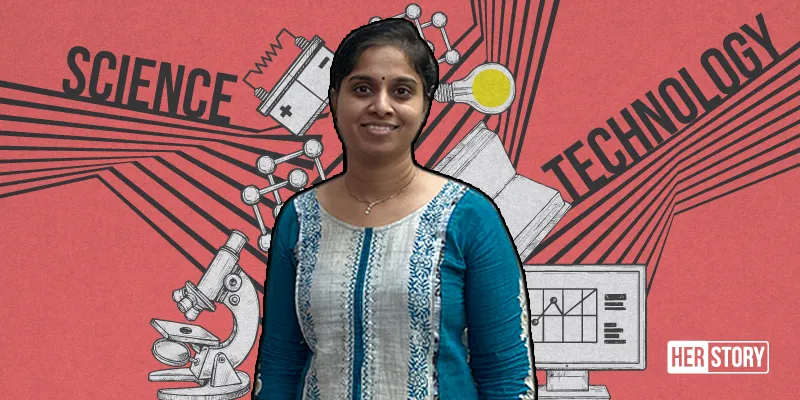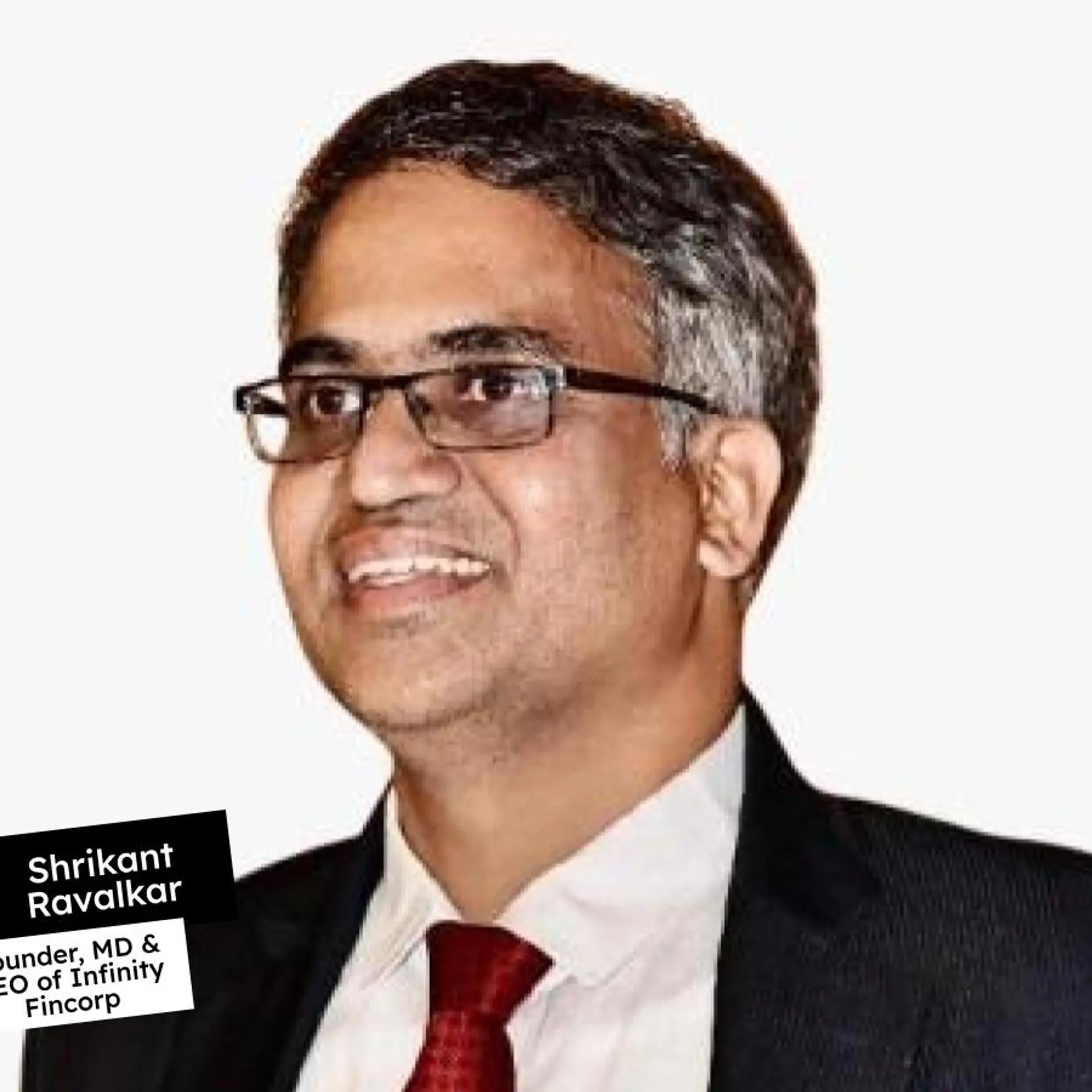[Woman in Tech] As Principal Group Engineer Manager at Microsoft, Padma Priya Gaggara’s aim is to drive new technologies and build a great team of engineers
Padma Priya Gaggara’s role at Microsoft is to identify where latest technologies can be used and to bridge gaps for users trying to find what they need from large volumes of data on the internet.
Despite growing up in a family with limited means, Padma Priya Gaggara, Principal Group Engineer Manager at Microsoft, used her love for Science and Math as wings to fly. With 16 years of experience in Microsoft, Machine Learning and Artificial Intelligence have been at the core of what she has been doing for a long time.
This is in addition to building distributed, scalable, high availability services. Padma Priya has also worked in multiple areas in search, whether it is Ranking, NLP, Large scale data mining, Building task completion scenarios (which is the direction search engines are headed).
In an interview with HerStory, this woman leader in tech talks about being an engineering leader, the Search domain and what more can be done to attract girls to STEM fields.

HerStory: Tell us a little about yourself, your education, and your formative years?
Padma Priya Gaggara: I am from Hyderabad and come from a lower middle-class family. My mom was a homemaker and my dad a Central government employee. Education was highly valued in our family and my siblings and I took excelling at academics very seriously!
Math was my favourite subject as a child, thanks to an inspiring teacher in high school. After receiving one of the top ranks in the Common Entrance Exam for Engineering in erstwhile Andhra Pradesh, I pursued my BTech in Computer Science from JNTU Hyderabad. Post my BTech, I moved to the US to do my Master’s in Computer Science from the University of Arizona.
HS: Can you trace your career trajectory for us?
PPG: I have been in the tech industry for nearly 18 years now. After my master’s, I joined Microsoft through a campus selection programme. This was in the early 2000s. It was the period of the dot-com crash and I was the only one from my school that joined Microsoft that year. Every course I had taken in computer science during my time at school made me more passionate about the field. Finally, it was time to author some real code. I started my career journey as a Software Design Engineer in a team that was responsible for anti-spam models for e-mail solutions like Exchange, Outlook, Hotmail, etc. Post that, I moved to the Bing Search Team and have been working on various segments like shopping, image, and video to improve the relevance of results.
About five years ago, I moved to India for personal reasons and since then have worked on other segments like local businesses, tech, health, and travel. Recently, I have started leading an effort on Enterprise Search on Bing.
During my journey with Microsoft, I grew to become an Engineering Lead and now a Group Engineering Manager who runs an organisation of 100+ engineers.
While my formal education wasn’t in the field of machine learning, I grew deeply interested in this domain during the first few years of my career. I was lucky that Microsoft provided me an opportunity and my managers extended me the necessary support to learn and grow on the job in this space. This gave me the confidence to not box myself into what I was already good at, but to try and learn technologies that interested me.
HS: As an engineering leader, what are your roles and responsibilities?
PPG: My role can be broken down into multiple dimensions, but here are a couple of key ones. Firstly, my role is to identify where we can use latest technologies and bridge gaps in terms of how users find what they need from large volumes of data on the internet. Building an online service at scale with high quality and addressing a user need is a core part of my job. Secondly, building a great team of engineers who are excited to take on challenges in this space and build creative and innovative solutions is an important part of my role. This involves living and fostering a culture where everyone is able to contribute in their unique ways, in an atmosphere of trust.
HS: ML and AI are at the core of what you have done in the past 10 years… can you elaborate?
PPG: AI has gone through an interesting journey during the last 10 years. This journey started with solutions that were based on heuristics or rules, slowly moving to more sophisticated ML models where feature engineering was key, which further gave way to Deep Learning models, which, while expensive to train and execute at scale, can give a dramatic boost to the quality of output. I am excited that I was a part of all these waves while working on areas like anti-spam/phishing filters and improving quality of search results.
With this evolution in search technology and the scale of data that was available with time, it is encouraging to see that we are able to build models that are quite accurate for the tasks they are being trained for, whether it is Natural Language Processing, Search Relevance, or Multi-Turn Conversation understanding.
HS: How has your work in the search domain changed the way we look at the internet?
PPG: The amount of data on the internet is growing immensely with time. Most of the data/information in the world is being digitised and will be available online sooner or later. Over time, there will be very little that will be inherited by generations by word of mouth or content in print. The true potential of internet lies in search, as huge corpus of knowledge has limited value if one cannot find information from it when one needs it. Ironically, while we are in an era of overload of information and are inundated by data, we spend a significant amount of time sieving through piles of data that is needed to complete our tasks.
HS: What more can be done to attract women to tech and STEM careers and also retain them?
PPG: Creating interest in subjects like Math, Science, and Analytics from early childhood will be key to inspiring a life-long interest in technology. Since women often juggle so many roles, providing adequate life stage transition support is key to helping them thrive at the workplace. Providing options for women to slowly ease back into work at a pace comfortable to them post these life changes will go a long way in providing continuity in their careers, thereby increasing their chances of moving up to senior roles.
HS: What have been your biggest highs and lowest lows?
PPG: I believe my biggest highs are yet to come as I am an eternal optimist. I am fortunate to have had support all along both at work and on the personal front, to grow from strength to strength in my career. One occasion that was my emotional low point, was when I deliberated quitting work, post the birth of my twin daughters.
I was fortunate to have encouragement from my mother, who asked me to not give up what I dearly loved—my work—as she felt that not many people find something they truly enjoy. I am lucky to have a husband who shared all the responsibilities of the kids, providing me the cushion to thrive at work. I am thankful to my manager at that time, who was a strong ally during these times when I went back and forth with my decision to continue or quit. He provided me the space to work part-time for nearly six months, which was not a norm in those days.
HS: Who or what inspires you?
PPG: Accomplishers in any field, whether it is tech, business, sports, science or arts, have always inspired me to give more than my best. It is a sheer joy to see their genius. The finesse they bring to their domain and how they push the envelope instills confidence in me that barriers exist only in our minds, and the world truly does not have any ceilings.
HS: What are your future plans?
PPG: I love what I do at Microsoft and I am fortunate to have the opportunity to build technologies of the future with amazing colleagues. I like to seize every opportunity to learn and grow and I look forward to contributing back to the technology space and the society at large.
(Edited by Evelyn Ratnakumar)


![[Woman in Tech] As Principal Group Engineer Manager at Microsoft, Padma Priya Gaggara’s aim is to drive new technologies and build a great team of engineers](https://images.yourstory.com/cs/4/8e7cc4102d6c11e9aa979329348d4c3e/Women-in-Science-and-TechHerStory-2-1578978193050.png?mode=crop&crop=faces&ar=2%3A1&format=auto&w=1920&q=75)





